Securing cannabis in Dupont Circle is simple.
For those with a medical marijuana card, just head inside Natural Holistic Healing Center, flash your proof of a prescription for pot, select your favorite product and be on your way.
But, it turns out that accessing marijuana is just as easy without a doctor’s note.
Anyone over 21 walking through the Circle can head into one of the neighborhood’s six gifting operations. Patrons can pick out their favorite BIC lighter or bumper sticker, hand over some cash, and walk out the door with a free cannabis “gift” of their choosing in an inconspicuous to-go bag.
Map of cannabis distribution in Dupont Circle
“It’s easy, and it should be!” said longtime Dupont resident George McKissick.
Whether or not this is legal is a complicated question, but its answer may not be for long. For the first time in the District’s history, the possibility of complete legalization of cannabis looms in the city’s near future.
Despite widespread calls for the full legalization of marijuana by Washington residents for decades, conservatives in the federal government have thwarted efforts to legalize the drug in the nation’s capital since voters first placed the issue on the docket in 1998.
In 2014, D.C. voters passed a ballot measure spearheaded by cannabis rights activist Adam Eidinger, which granted Washingtonians the right to possess, consume, grow and gift small amounts of cannabis for personal use within the District’s borders.
“It felt like we had liberated ourselves,” said Eidinger, who proposed Initiative 71 after police raided his smoke shop Capitol Hemp for illegally selling cannabis.
While the initiative granted individuals the right to cannabis, the legislation stipulated that the only businesses allowed to sell the drug are medical marijuana dispensaries licensed and regulated by D.C.’s Alcoholic Beverage Regulation Administration.
Since then, city officials appointed through local elections have expressed support for the full legalization of cannabis, but lawmakers in Congress have prevented local leaders from moving forward.
Up until recently, a provision included in the District’s annual budget from the federal government prevented the city from using local tax dollars to create a regulated cannabis market in Washington. Last month, the provision was removed from the most recent package of spending bills proposed by the U.S. Senate, which, if passed by Congress, would allow the city to begin the process of legalizing the sale of marijuana for recreational use for the first time.
Council members plan to discuss legislation proposed by Chairman Phil Mendelson, which would fully legalize the sale of recreational cannabis, at a public hearing next Friday.
Yet, according to Eidinger, this process could take more than two years, which would keep the neighborhood’s gifting operations in legal limbo.
The Circle’s Grey Market
The owners of Dupont Circle’s gifting operations said that they’ve found a way to circumvent the local prohibition on retail cannabis sales by providing free “gifts” of marijuana with the purchase of another product like a matchbook or a sticker— typically for a hefty price tag.
But ever since the market was born, which has transformed from pop-up delivery services to brick-and-mortar storefronts, local authorities and store owners who said their businesses are I-71 compliant have been in a legal stalemate.
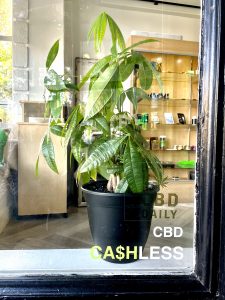
Raids on gifting operations have become common in the District, creating a headache for store owners. Under D.C. law, distributing more than one ounce of marijuana to another person can result in a 6-month prison sentence and a fine of $1,000.
“Illegal pop-ups are illegal, and we ought to enforce the law,” said Mendelson.
Employees at Dupont Circle’s CBD Reserve said that they have been confronted by law enforcement on several occasions, which has forced them to close up shop and lose revenue until the situation is resolved.
Norman Douglass, an employee at the store, said that officers visited workers after receiving a tip that the gifting operation was illegally selling cannabis.
While the store does distribute marijuana in addition to CBD and Delta 8 products, Douglass said it does so in the form of gifts included with the purchase of a piece of artwork— typically a print. Police were forced to allow the CBD Reserve to continue operations after employees proved to officers that the business was I-71 compliant.
“They didn’t have any other choice but to let the situation be,” said Douglass. “They cannot charge you with anything because you are compliant and doing what you’re supposed to do.”
Regardless, Douglass said keeping the business open is a “daily battle.”
Despite calls from some Council members to crack down on the illicit market, history shows that when authorities attempt to put an end to the gifting operations, they’ve been largely unsuccessful. An investigation by NBC4 in 2019 found that in over 80% of cases, charges stemming from drug raids or gifting operations die in the courtroom.
“First, they were put in jail for 60 years,” Eidinger said in reference to the mass incarceration of Washingtonians penalized under the city’s drug reform laws, which disproportionately impacted the capital’s communities of color. “Now they’ve been denied economic opportunity for seven years by the same racist people that supported the drug war.”
Since working to pass Initiative 71 almost a decade ago, Eidinger has focused on creating an equitable cannabis market in Washington. He said that doesn’t exist today because barriers prevent many of the city’s medical marijuana program applicants from getting a permit from ABRA.
“Their operations are a form of civil disobedience and they’re legal based on numerous cases that have been taken to court,” said Eidinger.
Eidinger said that gifting operations like the ones in Dupont Circle are the only avenue for many individuals to participate in the multi-billion dollar industry, and said that they were working well within the city’s laws in doing so.
‘This is about helping out everybody’
In recent months, Mendelson has led the charge in cracking down on gifting operations in favor of supporting the District’s legal avenues for purchasing the drug.
“We have a legal cannabis market, which is medical marijuana,” said Mendelson. “But what we have seen in the last couple of years with the emergence of these illegal pop-ups, is that the legal medical cannabis providers are being financially or economically injured.”
The consequences of the heightened competition due to the surging gifting market were compounded for Dupont’s two licensed dispensaries last summer, when almost 6,000 Washingtonians lost their ability to legally buy cannabis products. Governmental staffing shortages and other pandemic-related complications delayed renewal of medical marijuana cards.
Medical marijuana users in Washington take part in the city’s legal cannabis program for a variety of reasons. Natural Holistic Healing Center’s leading physician, Dr. Chandra Macias, said her patients’ ailments range from symptoms stemming from chemotherapy treatment to those battling anxiety.
View this post on Instagram
When thousands of medical marijuana cards expired in July, Macias said she lost the ability to continue providing care for many of her patients— but said their needs never waned.
“Did their health just recover overnight? No,” said Macias, who was the first Black, female doctor to receive a license to prescribe medical marijuana in the United States. “They were driven to the illicit market because of the different barriers to get into the program.”
Today, D.C.’s medical marijuana program allows patients with qualifying conditions to purchase up to four ounces of marijuana at licensed dispensaries every 30-days.
Though, to receive a medical marijuana card, those seeking to register must get approval from one of just 464 physicians registered with ABRA in the District, many of whom charge upwards of $200 per visit. After receiving approval, patients must shell out $100 to register with ABRA, which costs an additional $100 annually to renew the card.
As a result, many Washingtonians are left with no other choice but to pursue other avenues to secure cannabis.
“I broke my back in ‘92,” said McKissick, a homeless Dupont Circle resident who uses marijuana as a pain reliever. “The doctors have been saying its medicine for umpteen years, way before they started putting people in jail for selling it.”
McKissick said the overhead costs of registering with the ABRA and navigating the licensing system have prevented him from receiving a medical marijuana card, and said that the gifting operations are a step toward broadening access to cannabis for those who need it.
But the suffering medical marijuana industry as a result of the thriving gifting market means less tax revenue for the city, which receives 5.75% of all dispensary earnings in sales tax.
Mendelson recently proposed a unanimously passed bill in the D.C. Council that is meant to levy the competition between the two markets by overriding expired medical marijuana cards and allowing qualifying patients who have received a written recommendation for cannabis from an ABRA authorized practitioner to continue purchasing, possessing, and administering medical marijuana until Jan. 31, 2022.

The original language for the bill included a provision that would have led to a crackdown on the city’s unregulated gifting industry, but was removed one day before the Council was scheduled to vote on the legislation.
Despite delivering a blow to her dispensaries profits, Macias said that quashing the gifting industry would not only harm those who use cannabis medicinally, but also, those selling marijuana under Initiative 71 who have been prevented from joining the city’s legal market.
“Those are the pioneers and the real trailblazers in the industry,” said Macias, who is against the Council’s push to penalize owners of gifting operations. “There were people who wanted to have access to healthcare through medical cannabis who had nowhere to go, and the illicit market provided them that relief.”
Across Dupont Circle’s marijuana markets, there’s a resounding sentiment from dealers to doctors that expanding cannabis accessibility is about taking care of the community.
“This is about the public, this is about helping out everybody,” said Douglass, whose gifting operation in Dupont Circle is directly adjacent to a legal dispensary. “Marijuana is helping people with anxiety, glaucoma, it’s doing its work, and it’s doing a great job. There’s so much stuff that we never really knew that marijuana could do, but it’s doing it now.”

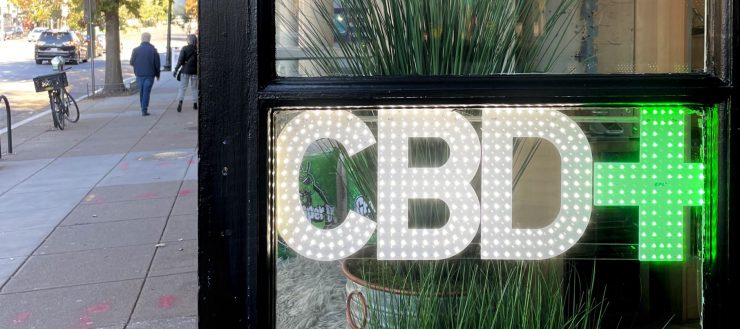
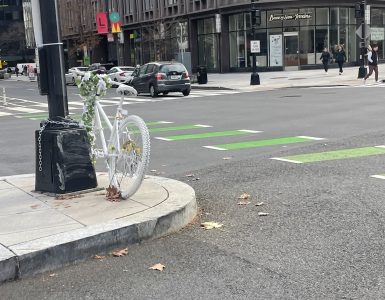
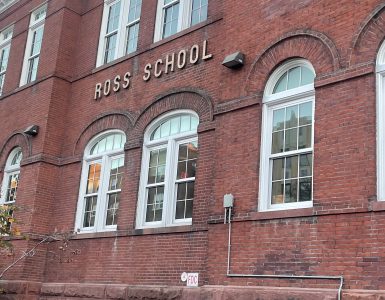
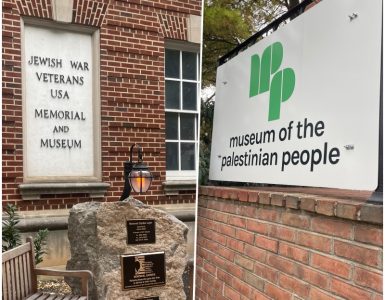










Add comment